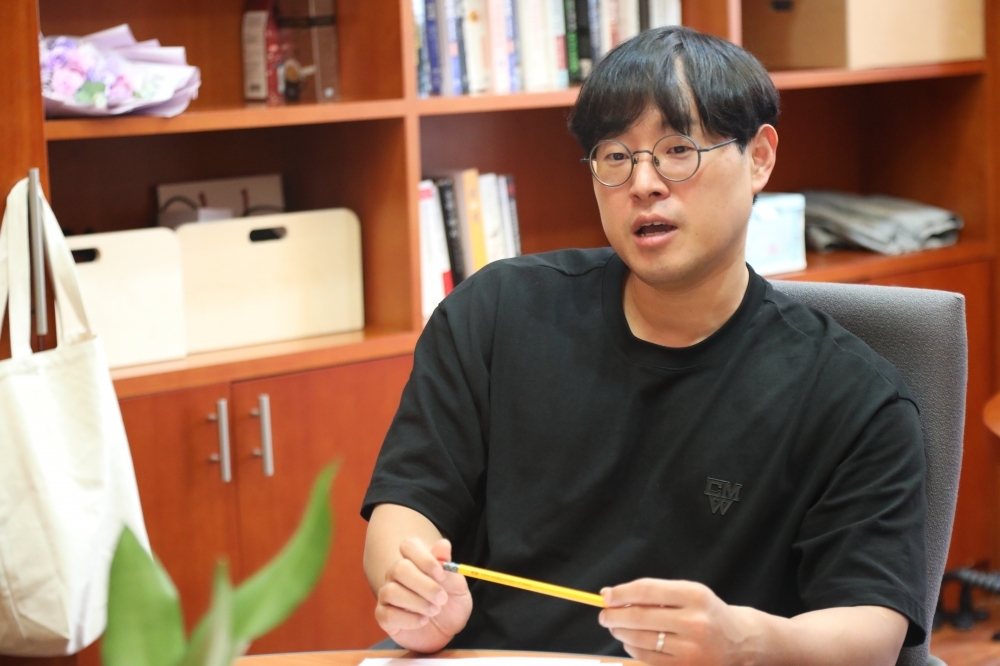News
KUBS News
[Interview] IBRE Research Award Winner – Professor Jongsoo Kim

In 2025, Professor Jongsoo Kim of Korea University Business School was honored with the IBRE Research Award for his co-authored paper titled "Female Entrepreneurs and International Entry Mode Choice: Evidence from Entrepreneurial Firms in China" (co-authors: Anthony Kim, L.Q. Wei, G. Zhou), published in the international journal Journal of World Business. This empirical study analyzed how two key factors—political networks and family support—influence female entrepreneurs' decisions to adopt high-risk entry strategies when expanding into foreign markets. Notably, the study found that political networks encourage risk-taking by mitigating financial constraints, whereas family support can suppress risk-taking in financially constrained situations. The findings have drawn significant academic attention.
Q1. First of all, congratulations on winning the IBRE Award. Could you share how you feel about receiving this honor?
A1. I’m deeply honored to receive such a prestigious award, especially right after joining my alma mater. I’m truly grateful for this recognition, and I see it as motivation to continue my research with consistency and passion, and to strive for even greater achievements going forward.
Q2. Could you briefly introduce the research that earned this award?
A2. This paper examines how political networks and family support influence the international entry strategies of female entrepreneurs. While previous studies often suggest that women tend to be more risk-averse than men, our findings offer a different perspective. We found that when female entrepreneurs have strong political ties within their home countries, they are more likely to pursue high-risk entry modes in foreign markets.
Interestingly, family involvement also increases risk-taking tendencies. However, the study reveals a nuanced dynamic: political support encourages risk-taking even under financial constraints, whereas family support, under similar constraints, tends to discourage high-risk decisions. These findings contribute to a more nuanced understanding of how institutional and familial factors shape female entrepreneurship in global contexts.
Q3. What inspired you to pursue this particular research topic?
A3. Business research has long focused primarily on male CEOs and founders, but in recent years, there has been growing interest in female entrepreneurship. Female entrepreneurs often face additional challenges in areas such as securing funding or taking strategic risks, due to various external constraints.
This research began with a fundamental question: How can we improve the likelihood of success for female entrepreneurs? I was especially interested in whether political networks, opportunities for contact with high-ranking officials, or policy support for women balancing entrepreneurship and childcare could make a meaningful difference.
Q4. What impact do you think your research could have on society or industry?
A4. The success of female entrepreneurs is not solely a matter of individual effort—it also depends on institutional and societal support. For example, implementing systems that provide reliable childcare or offering additional financial assistance to women entrepreneurs with children could be highly effective measures.
This is not about disadvantaging men, but about acknowledging that women often begin their entrepreneurial journeys under structurally unequal conditions—and making efforts to address and correct those imbalances.
Q5. Do you have any ongoing or future research projects you'd like to share?
A5. I’m currently working on a range of research topics. One area I’ve been particularly interested in is the relationship between age and technology adoption. While it is commonly assumed that younger generations adapt more readily to emerging technologies like big data and AI, my research suggests otherwise. With sufficient access to data, older individuals—leveraging their accumulated experience—can in fact outperform younger users in certain contexts. I plan to continue exploring this intersection between age, experience, and digital technologies.
Q6. Do you have any advice you'd like to share with students?
A6. To graduate students in particular, I’d like to say that good research often begins with everyday observations. For instance, when kiosks were first introduced, I noticed older people hesitating in front of the machines. That made me ask: Why do older adults struggle to adapt to new technologies? That simple question became the starting point of a broader research project.
I encourage students to pay close attention to small but meaningful phenomena in their daily lives—whether from their own experiences, or those of family and friends. Often, the most compelling research questions arise from these very moments.
Summary of the Paper:
"Female Entrepreneurs and International Entry Mode Choice: Evidence from Entrepreneurial Firms in China"
This study investigates how two types of external resources—political involvement and family support—affect the international entry mode choices of female entrepreneurs. Drawing on survey data from entrepreneurial firms in China, the analysis reveals a clear association between these factors and a greater likelihood of adopting high-risk entry strategies.
Specifically, female entrepreneurs with strong political ties are more inclined to pursue riskier modes of entry, and similar tendencies are observed when there is substantial family involvement. However, the interaction between these external and internal factors and financial constraints presents a more complex picture: political connections tend to compensate for limited financial resources and enable greater risk-taking, whereas family support appears to inhibit high-risk entry when financial resources are lacking.
By highlighting how various resources—individually and in combination—influence internationalization decisions, this study contributes to a deeper understanding of the strategic behavior of female entrepreneurs. It sheds light on the unique challenges they face and the dynamics of entrepreneurial internationalization in emerging economies.


